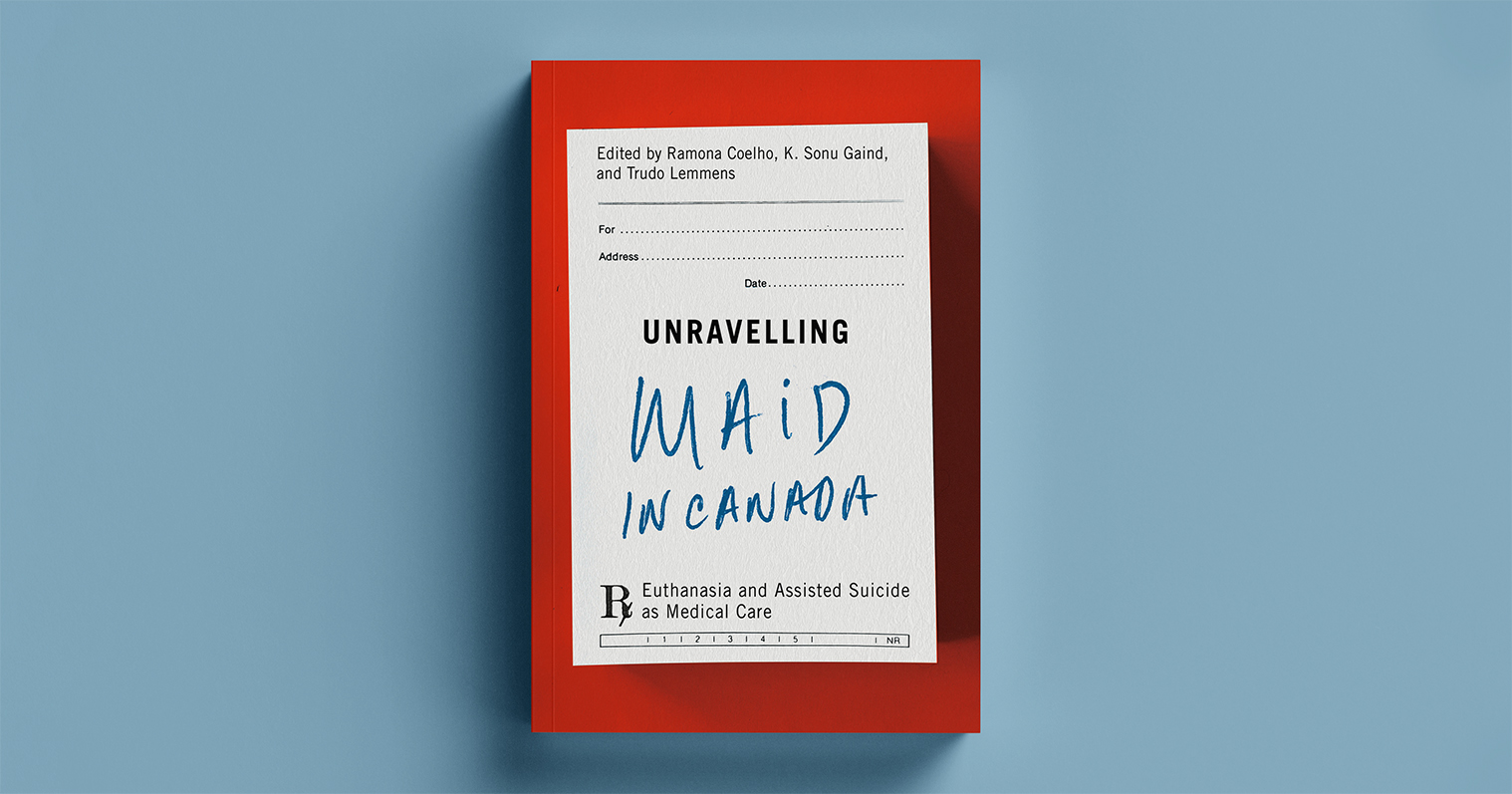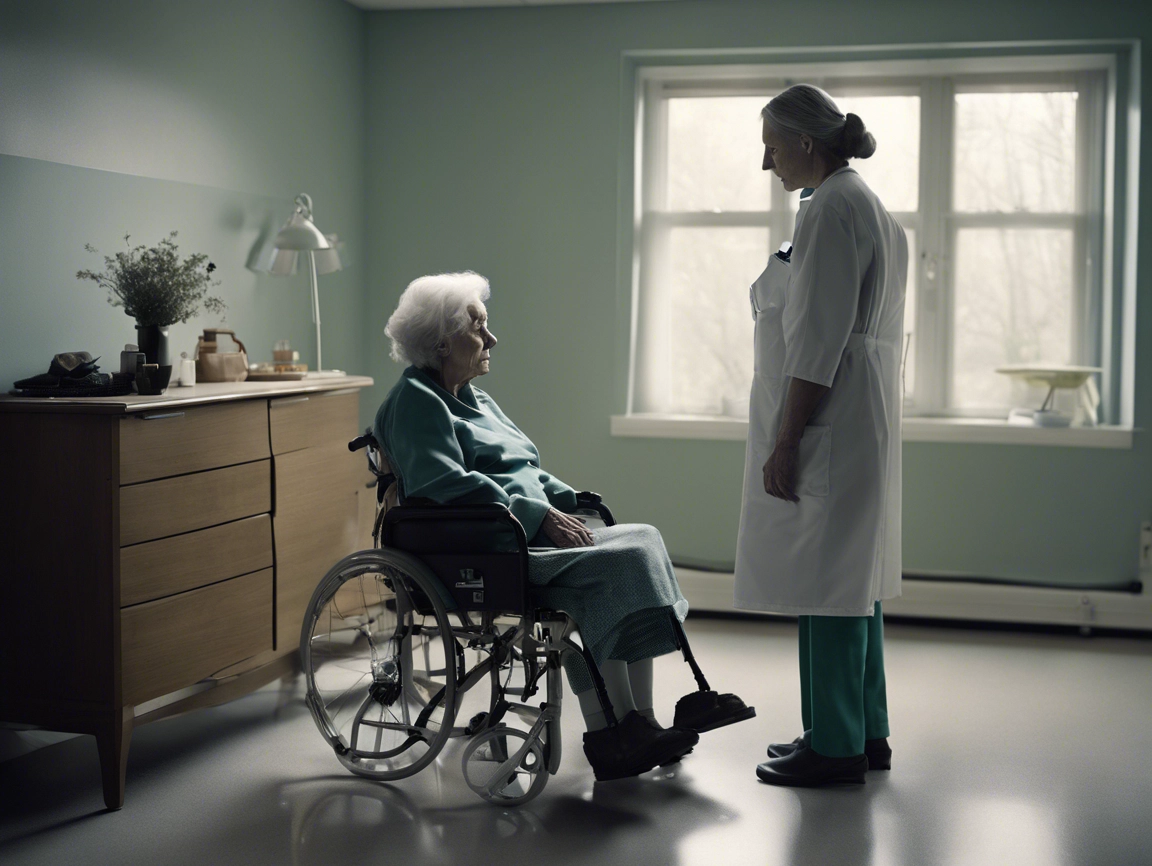You no longer need to be dying for your physician to end your life
As Canada and the world live in fear of death from the COVID-19 pandemic, we are reminded of the lengths to which public authorities can and should go to prevent death and to protect the common good. We consider as normal and necessary the curtailment of certain individual liberties in the interest of protecting citizens from the spread of disease. We are thus reminded that the exercise of personal autonomy, far from being the supreme value in society, must be limited when it can lead to harm to others.
These observations are eminently pertinent to another great societal debate, as a further threat to the lives of sick, disabled and older Canadians proceeds almost unnoticed. Many Canadians are not even aware of Bill C-7, which was re-tabled on October 5, 2020 in the federal Parliament. This bill, expanding “medical assistance in dying” (MAiD) to virtually everyone who is sick and suffering in Canada, will, if passed in its current form, make our country the world leader in administering death. As medical doctors, we feel compelled to voice our dismay at how individuals who have little lived experience of the realities involved in the everyday practice of medicine suddenly and fundamentally changed the nature of medicine by decriminalizing euthanasia and assisted suicide.
Medicine, understood over the centuries as a profession that never intentionally harmed, but rather healed, comforted, and advocated for the lives of those who are sick and vulnerable, has been transformed into a technical occupation that allows physicians to deliberately end the lives of their suffering patients. Forced participation in arranging and facilitating euthanasia and assisted suicide is now required by certain regulatory colleges.
Unfortunately, our patients are the ones who suffer the most from the consequences of this ill-devised scheme. The shock of a sudden illness, or an accident resulting in disability, can lead patients into feelings of anger, depression, and guilt for requiring care – emotions that, with proper support and attention, can resolve over time. The care and encouragement shown by physicians may be the most powerful force in overcoming despair and providing hope. Unfortunately, patients can no longer unconditionally trust their medical professional to advocate for their life when they are at their weakest and most vulnerable. Suddenly, a lethal injection becomes part of a repertoire of interventions offered to end their pain and suffering.
Bill C-7 would allow those who are not dying to end their lives by a lethal injection at the hands of a doctor or nurse practitioner. Shockingly, most of the safeguards that Parliament deemed necessary in 2016 to protect the lives of vulnerable individuals from a wrongful death are being removed. Under the new bill, an individual whose natural death is considered to be “reasonably foreseeable” could be diagnosed, assessed and euthanized all in one day. We are very concerned that removing the 10-day reflection period and other safeguards will lead to an increase in coerced or tragically unconsidered deaths.
The reckless removal of safeguards previously deemed essential will place desperately vulnerable patients directly in harm’s way and may cost them their very lives.
While the authors of Bill C-7 consider it sufficient to offer patients information about other possible means to alleviate their suffering, there is no requirement that the service be available to the patient. We live in a country where the wait time to see a psychiatrist in certain areas is 4-8 times longer than the 90-day waiting period proposed in the bill for those whose natural death is not considered “reasonably foreseeable”, and where 70% of citizens nearing the end of life still have no access to basic palliative care services. Yet MAiD has been deemed an essential service under the Canada Health Act and palliative care has not. This bill creates the conditions for cheap and easy death through euthanasia or assisted suicide.
This is not the medicine that we have devoted our lives to practicing. Our intent is to heal and to alleviate suffering, not to deliberately end life. We advocate for the lives of our patients, not their deaths. We believe in garnering adequate supports for all our patients so that they have the basic requirements needed to live; we do not sanction and facilitate their death as a response to their suffering.
Our profession has been coerced into facilitating suicide rather than preventing it, for ever-increasing numbers of citizens. We watch in utter dismay and horror at how the nature of our medical profession has been so quickly destroyed by the creation of misguided laws. We, the undersigned, declare that the passage of Bill C-7, if left unchecked, will contribute to the destruction of much more than our medical profession, but fundamentally, of a Canadian society that genuinely values and cares for its most vulnerable members. Canadians deserve better.
Authors:
Ramona Coelho, MDCM, CCFP
Family Physician
London, Ontario
Catherine Ferrier, MD, CCFP (COE), FCFP
Family physician
Division of Geriatric Medicine, McGill University Health Centre
Assistant Professor of Family Medicine, McGill University
Montreal, Quebec
Sheila Rutledge Harding, MD, MA, FRCPC
Hematologist, Saskatchewan Health Authority
Professor, College of Medicine,
University of Saskatchewan
Saskatoon, Saskatchewan
Dr. Leonie Herx MD PhD CCFP (PC) FCFP
Associate Professor & Chair, Division of Palliative Medicine
Department of Medicine, Queen’s University
Kingston, Ontario
Dr. Timothy Lau MD MSc FRCPC
Associate Professor, Division of Geriatric Psychiatry,
Department of Psychiatry, University of Ottawa
Ottawa, Ontario
Sephora Tang, MD FRCPC
Staff Psychiatrist, Clinical Lecturer
Department of Psychiatry, University of Ottawa
Ottawa, Ontario
Lucas Vivas, MD MHSc FRCPC
General Internal Medicine
Brampton, Ontario


